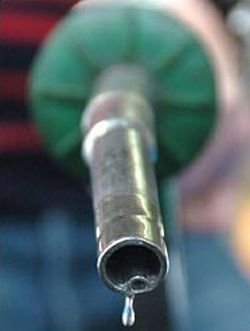Strike threatens fuel supplies in South Africa

"We are basically concerned over the high levels of intimidation and violence... the big challenge is that this undermines our response and the contingency plans in place," said executive director Avhapfani Tshifularo.
The road freight strike entered its third day on Wednesday, February 16, 2011, with reports of intimidation and violence, mainly on the East Rand, continuing.
The majority of the trucks belonging to the Road Freight Employers Association (RFEA), said Tshifularo, were not available. Those left to transport fuel belonged to the oil companies or those not participating in the strike.
Tshifularo said intimidation of the non-striking workers hampered the use of the trucks not belonging to the RFEA.
Commenting on reports that petrol pumps in Johannesburg had run low, he said it was difficult to track fuel levels on the ground.
"It's a dynamic situation, changing all the time. A station that did not have fuel at midday may receive delivery at 1pm, so it's very difficult to say which stations have run dry," he said.
The SAPIA would continue to monitor the industrial action and its impact on the industry.
Four unions involved in the strike - the Transport and Allied Workers Union of SA, the Professional Transport Workers Union, the SA Transport and Allied Workers Union, and the Motor Transport Workers Union - are demanding a 20 percent increase allocated over a two-year period, for example 10 percent in 2011 and 10 percent in 2012.
The RFEA was offering an increase of 7.5 percent across the board for 2011 and a further 7.5 percent increase for 2012.
Talks between the union and the employers continue.


